A preschooler is a child that’s no longer a baby, but still too young to go to school. At this impressionable age, you have a responsibility as a parent to help your little child build preschool life skills to prepare them for the world.
Kids usually start preschool at 3 to 4 years of age.
However, as a parent, you still remain their main source of education.
That means that your child depends on you to teach them valuable life skills, regardless of whether or not you decide to send them to preschool. Making that decision is an entirely different topic that we will reserve for another day.
Today, we’re going to shed light on what you should teach your preschooler.
At this age, a child should start developing their social and emotional skills, as well. So, it’s not only about letters and numbers, as many would have you believe. Instead, we’re going to focus on everything that you need to know.
So, What Exactly Are Life Skills?

A child at this young age actively absorbs knowledge.
They’re like little sponges, drawing information from the world around them, fascinated by absolutely everything. That’s why it’s crucial for parents to take this period very seriously, because it defines their child’s adulthood, as well.
What they learn now directly influences their future.
So, what kind of preschool skills should your child know?
Well, that’s a very broad subject. Before we really get into the specifics, let’s make it a bit clearer. During this young and impressionable time, you want your child to focus on learning the following life skills, in no particular order:
- Practical life skills
- Emotional life skills
- Social life skills
Practical preschool life skills involve daily tasks and habits, such as tying shoelaces, dressing and undressing without your help. You want your child to start developing their sense of individuality and building self-confidence.
On the other hand, emotional life skills imply the ability of self-expression. Ideally, your child should learn how to express their emotions. Start from simple emotions, such as happiness, sadness, anger, surprise and excitement.
Finally, learning social preschool skills is just as critical, because you want your child to get along with others easily, to be able to form positive and meaningful relationships, to communicate in creative ways, to listen and to behave.
Now, all of this seems like a lot, and maybe it is.
That’s why we have written this handy guide in order to help you understand what areas of life you should focus on and what preschool skills to teach.
Practical Life Skills for Preschoolers
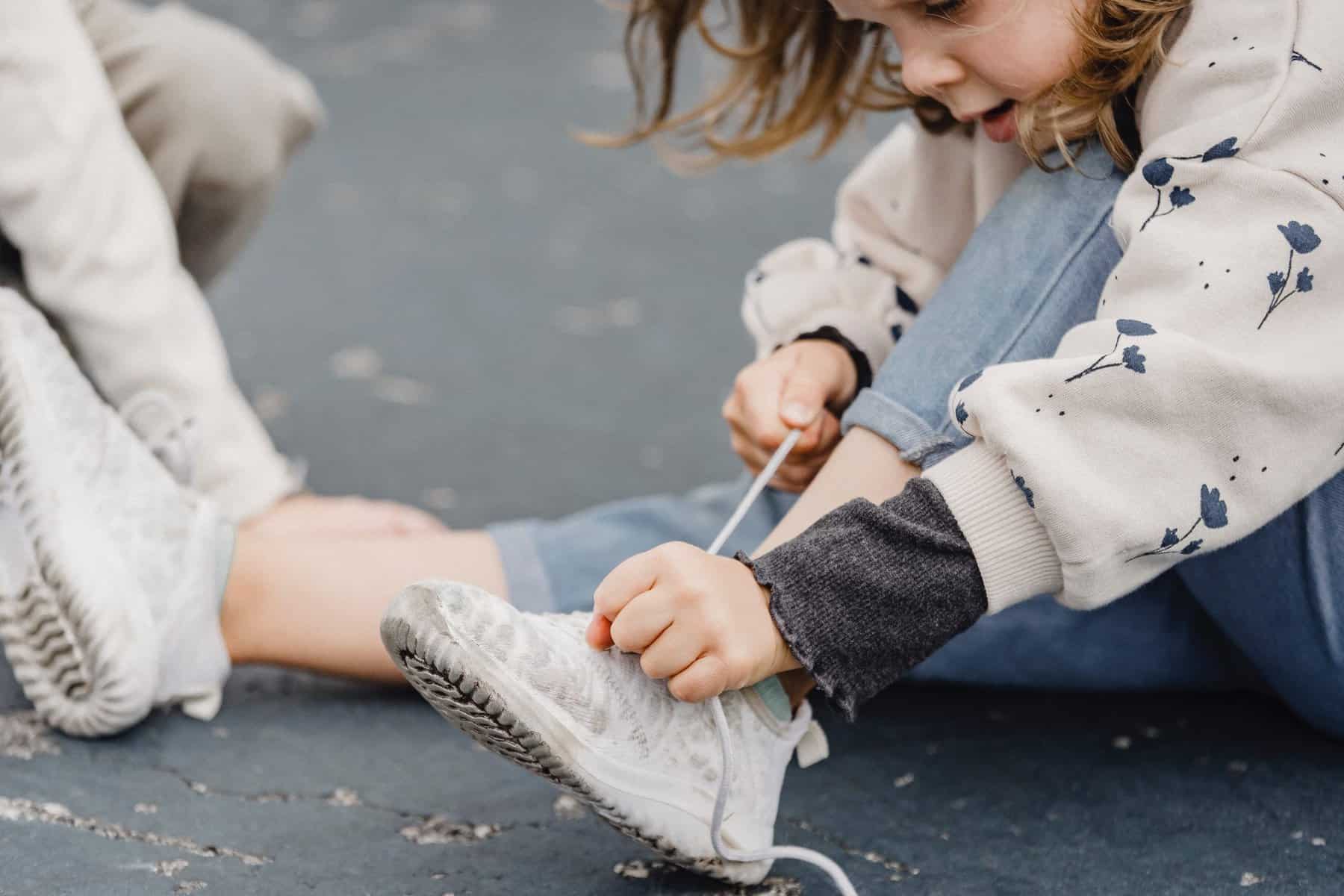
First of all, don’t expect your kid to get everything right from the start.
Practice patience. Be understanding. Preschoolers have a short attention span and they’re more about doing than learning. Even if you feel as if your efforts are in vain, know that your child is learning subconsciously.
Eventually, everything falls into place. You have nothing to worry about.
However, here’s a short overview of what life skills you should focus on:
- Getting dressed. Start from socks and work your way up.
- Brushing teeth. Take turns. Make it a dance.
- Using the toilet. Lower your expectations. This takes time.
- Tying shoelaces. Start early but don’t expect them to master it.
- Washing hands. This routine sets a great hygienic precedent.
Kids at this age still learn best from play and interaction.
So, don’t start getting all theoretical with your child just yet. Keep it playful and exciting. A hands-on approach works much better at this tender age. Put things in front of them or in their hands and watch how they decipher the world.
Every room in your home resembles a classroom.
From the kitchen to the bathroom to the bedroom, your child can learn various life skills for preschoolers in every room. Start including them in your daily activities, as well. Ramp up the difficulty from time to time and observe.
Trust your kid to be able to solve problems on their own.
That’s how they build their sense of individuality.
Emotional Life Skills for Preschoolers
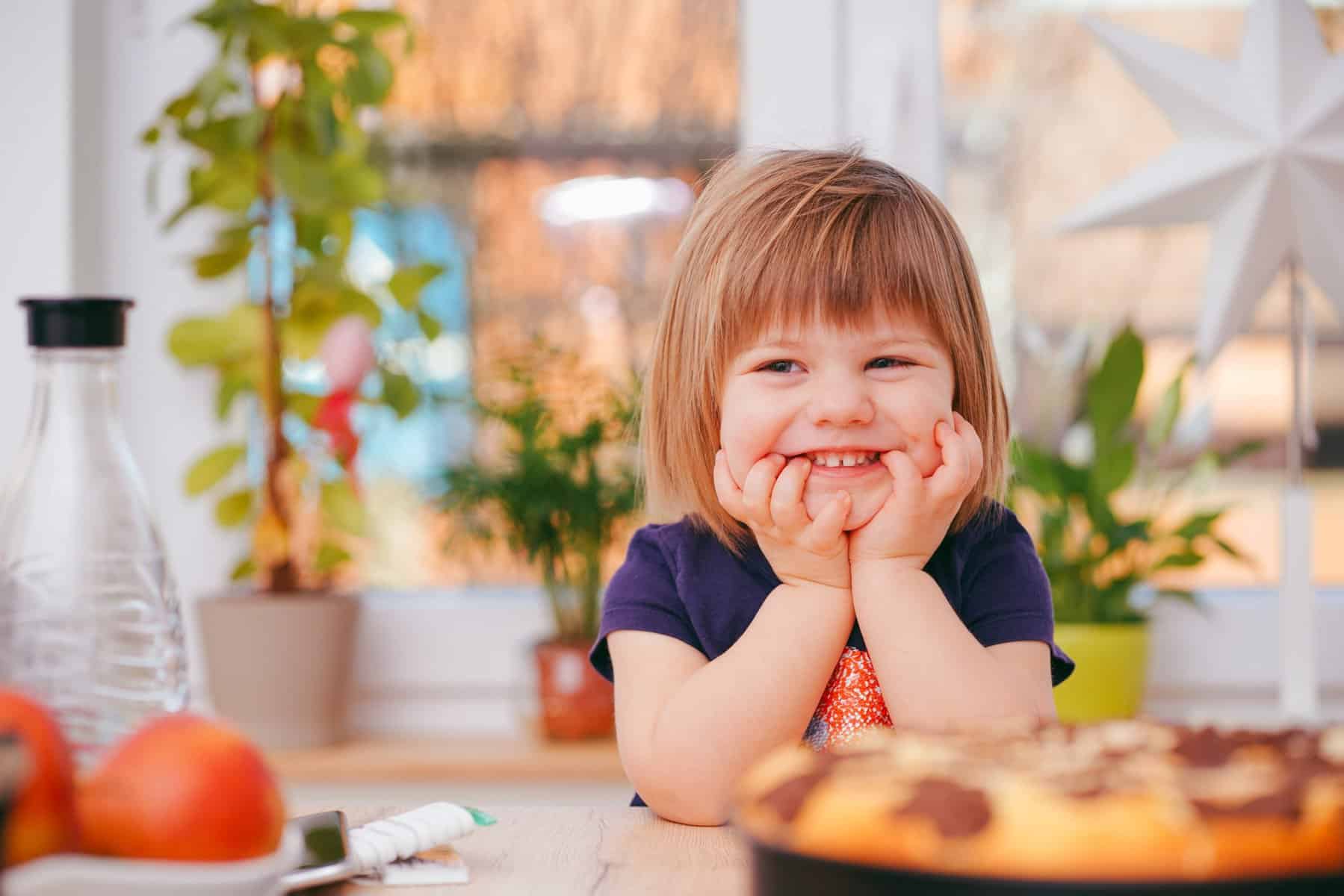
Children feel emotions before they understand them.
However, understanding their emotions helps them control their behavior. Naturally, you can’t expect your kid to master emotional self-control within the first few years of their life. You have to take things slow. You have to be patient.
Every child progresses emotionally at their own pace.
Teaching your child emotional preschool skills helps them behave in a healthy and well-mannered way. By beginning to understand their emotions, they begin to understand others, which inevitably results with empathy.
Here’s a few emotional skills that you can help your child develop:
- Empathy, which helps form strong and trusting relationships.
- Self-awareness, which leads to understanding of self and others.
- Stress tolerance, which helps them tackle difficult challenges.
- Communication, which allows them to coordinate with their peers.
- Self-expression, which allows them to convey their feelings.
When we talk about these preschool skills, we have to keep in mind that we’re talking about teaching children. Self-awareness, therefore, means something completely different for kids as opposed to fully grown and matured adults.
That’s why you should keep your expectations in check.
Regardless, emotional maturity begins at a young age. It’s a long journey, but the seeds you plant today bloom tomorrow. So, make sure that you’re taking all the necessary steps to ensure that your child learns what matters most.
Social Life Skills for Preschoolers

Teachers exist to complement the education you practice at home.
As such, it’s up to you to be the main catalyst that determines the quality of your child’s growth. With the right kind of program and the right amount of devotion, you can transform your home into a productive and meaningful classroom.
Besides practical and emotional preschool skills, at this age your child should also start developing social life skills. What does that actually mean?
Social preschool skills help develop your child’s behavior.
Let’s take a moment to examine a few of them:
- Sharing, which helps your child form healthy friendships.
- Cooperation, so that they may learn to work alongside others.
- Following directions, but not to the point of blind obedience.
- Politeness, to help foster respect and kindness.
- Generosity, which allows your kid to become truly selfless.
Like adults, some kids are more social than others.
However, everyone has to develop social skills in order to navigate the world successfully. As such, take the time to nurture your child’s social preschool skills so that they may overcome their shyness and develop self-confidence.
How to Actually Teach Life Skills
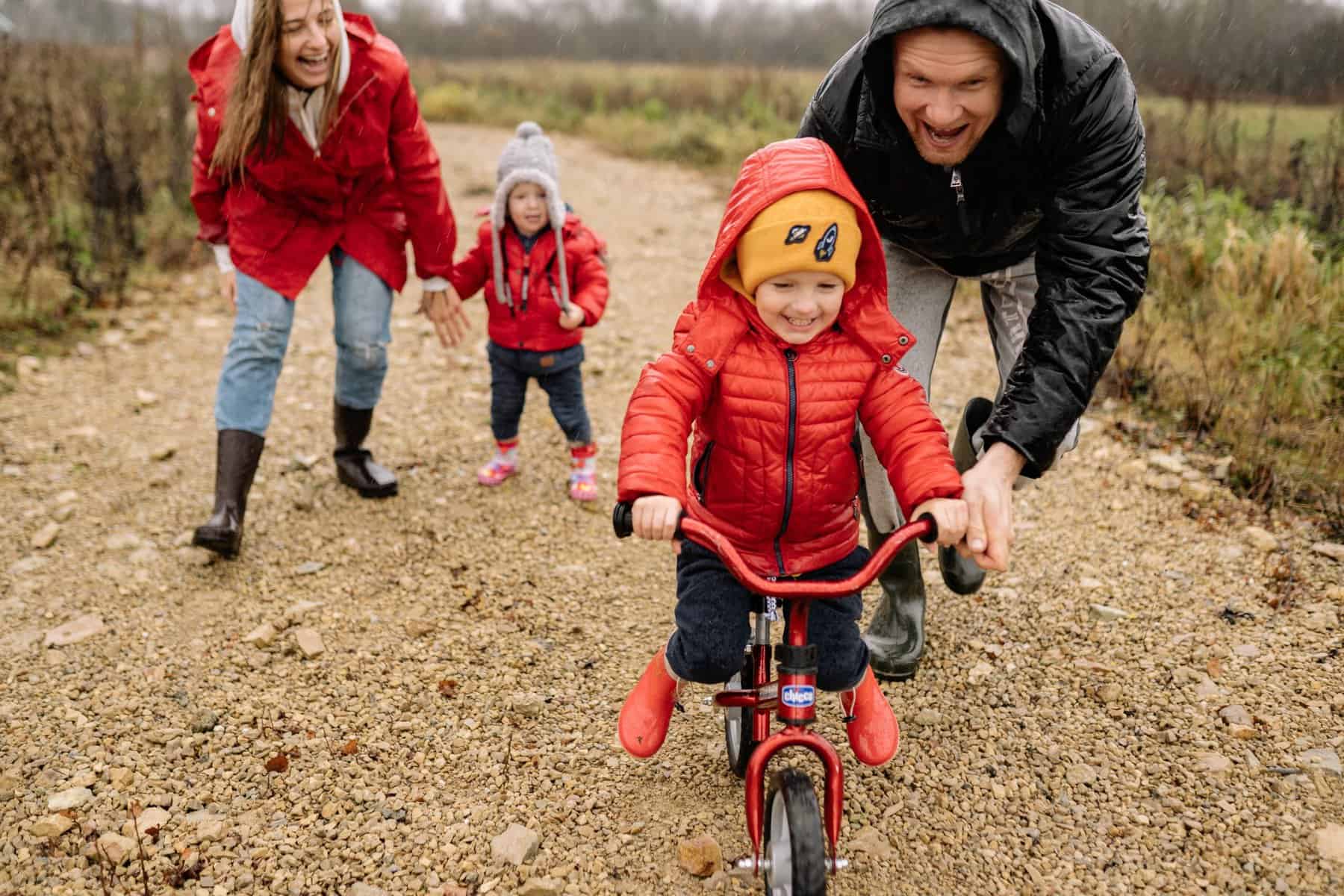
Knowing what to teach doesn’t imply knowing how.
At school or at home, teaching isn’t about showing children what to learn, but teaching them how to learn. In other words, children need to learn how to learn. Sounds a bit complicated, right? Well, it doesn’t have to be.
Start with belief. It would be great to make a schedule for your little toddler to feel the essence of time and their obligations. That will make them feel important.
Your thoughts and emotions reflect on your child. If you doubt them, it’s pretty certain that they will grow up doubting themselves. So, make sure that you give them your trust. Be their wings. Tell them that you truly believe in them.
When you do that right, the rest comes easy.
Teaching preschool skills takes a lot of patience.
At this young and early age, children need all the time of the world. Let them make mistakes. Sometimes, the best way for your children to learn and experience new things is to allow them to freely blunder and to err.
By implementing a balanced behavior program, your home becomes a school of its own, encouraging your child to learn and to grow. Be patient and kind to yourself, too, especially if this is your first time actually raising a child.
With so many things to consider when it comes to preschool life skills, you have to stay on top of things. That means following a well structured program so that you don’t get overwhelmed. There’s nothing wrong about seeking guidance.
Ask for help whenever necessary. Share experiences with other parents.
Don’t underestimate your child. They can do incredible things.
In Conclusion
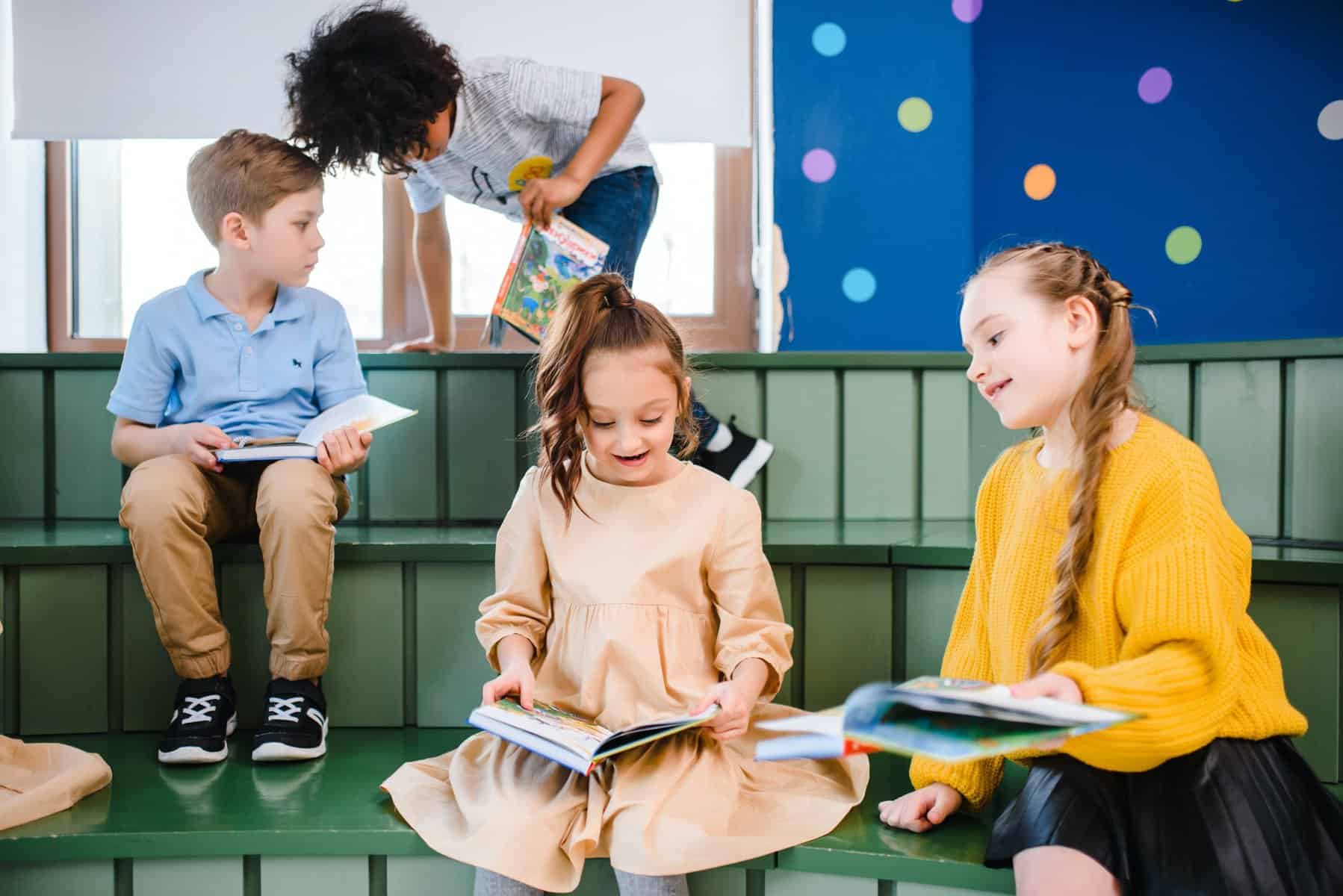
Helping your child develop preschool skills takes a lot of work and effort.
Luckily, with this guide, you have a plan and a program to work with.
You know your child best, so it’s important that you keep monitoring their growth and adjusting their education in accordance with their needs. Whether at home or with the help of a preschool program, your child develops crucial life skills.
Stay on top of things by keeping everything organized.
Try not to focus on one thing too extensively, because there’s so much that your child has to cover. From practical skills to emotional and social skills, it can all seem a bit overwhelming for parents, but you’ve got everything under control.
Build trust and stay committed.
With so many new and exciting things going on in their lives, it’s important that your child sees that you’re in control and that you always know what’s best.
When they place their trust in you, there’s nothing that you can’t do.

Mother of three and a primary school teacher. I’ve always loved being around children and helping them, so I chose my path as a teacher. It is sometimes hectic with three children, but I am 100 percent into it and wouldn’t change it for anything in the world.


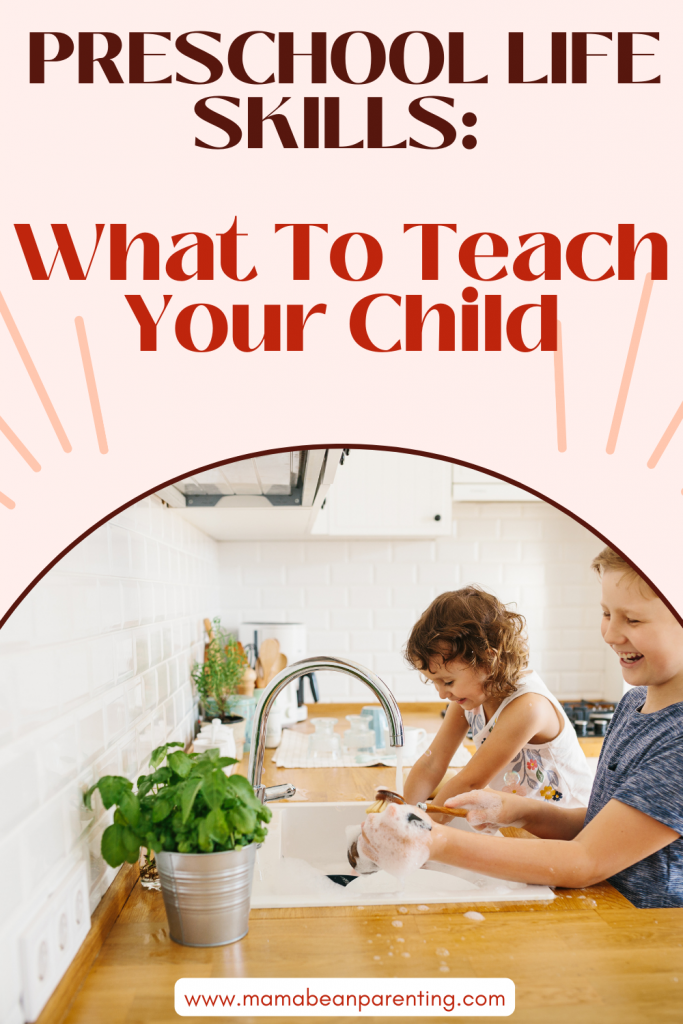
9 Show and Tell Ideas for Kindergarten • Mama Bean Parenting
Friday 24th of February 2023
[…] It’s crucial for young children to start developing their life skills. […]